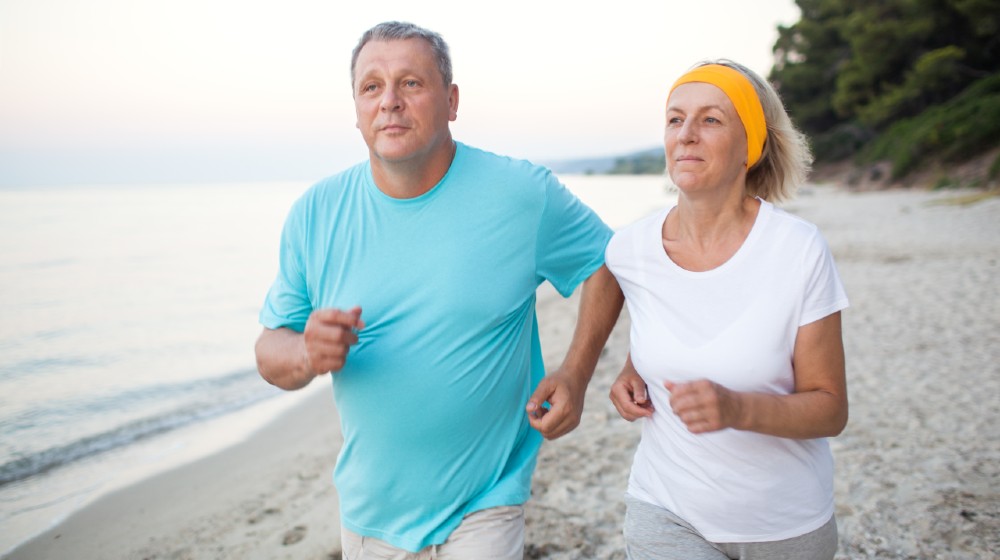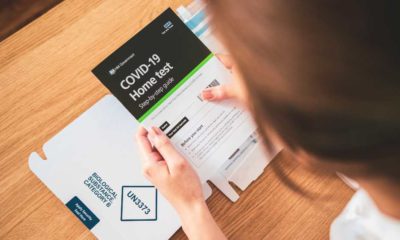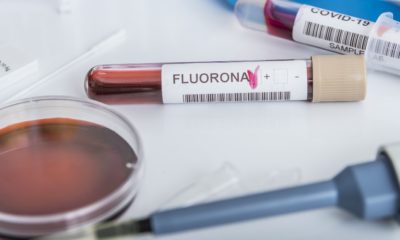US News
Regular Exercise Helps COVID-19 Patients Avoid Hospitals

New studies show that regular exercise can help COVID-19 patients recover. It can avoid hospitalizations, ICU visits, and even prevent early death. In a new study published in the British Journal of Sports Medicine, researchers found that COVID-19 patients who exercised regularly before getting sick were the least likely to require hospital or ICU admission. In addition, they are also the least likely to die due to COVID-19.
RELATED: STUDY: Morning Exercise Can Increase Weight Loss
Regular Exercise Routines Protect COVID-19 Patients From Complications
Researchers from Kaiser Permanente Fontana Medical Center in Southern California and UC-San Diego conducted the study. It reviewed data from 50,000 adult patients in California diagnosed with Covid-19. Also, the period covered January 2020 to the end of October 2020.
Participants reported how many minutes of exercise they conducted every week. Specifically, they analyzed weekly physical activity with their Covid-19 response.
The study found that patients who showed the least activity (less than 10 minutes a week) had a greater risk of hospitalization, admission to the ICU. In contrast, those who worked out 150-plus minutes a week were less likely to need hospitalization.
Follow US Physical Activity Guidelines
“Even after we controlled for variables such as obesity and smoking in the analysis, we still saw inactivity was strongly associated with much higher odds of hospitalization, ICU admission, and death compared with moderate physical activity or any activity at all,” said Dr. Robert Sallis.
Sallis is a family and sports medicine physician at the Kaiser Permanente Fontana Medical Center, and one of the leaders of the study. As to what kind of exercise, Sallis referred Americans to follow US Physical Activity Guidelines.
“Adults should do at least 150 minutes and up to 300 minutes a week of moderate-intensity physical activity, or 75 minutes to 150 minutes a week of vigorous-intensity aerobic physical activity,” Sallis says.
He added that even basic levels of exercise, “such as walking 30 minutes a day, five days a week is enough to help your body to fight off a variety of diseases, including Covid-19.”
Promote Physical Activity
Researchers recommend promoting physical activity to protect against COVID-19 effects. Public health agencies should promote and incorporate exercise into routine medical care procedures.
Meanwhile, a National Institutes of Health study last June lined regular exercise to a boost in immune-system response. This boost can serve as a tool in helping fight Covid-19, researchers said.
However, the intensity of exercise can influence the outcome, according to a different study. In particular, the study discovered that slow walkers are almost four times more likely to die from Covid than brisk walkers. T
“We know already that obesity and frailty are key risk factors for COVID-19 outcomes. This is the first study to show that slow walkers have a much higher risk of contracting severe COVID-19 outcomes, irrespective of their weight,” lead researcher Tom Yates said in a press release.
Watch the World Health Organization Q&A video on physical activity at home under COVID-19:
Do you exercise regularly? If not, do you plan to exercise more so knowing it can reduce COVID-19 risks?
Let us know what you think. Leave your comments in the comments section below.












